RSV is on the Rise. Tips to Keep your Kids Healthy

It is undeniable. RSV, short for Respiratory Syncytial Virus, is on the rise in our community. This common virus runs its course every year and typically brings on an onset of cold-like symptoms. While RSV is generally mild for most people, this year, RSV is hitting children particularly hard and causing serious respiratory infections.
As more and more children are coming into the hospital with RSV, our team wanted to share some important information on how you can try to keep your family healthy, what to do when someone gets sick and when to seek medical attention.
RSV Symptoms:
RSV symptoms vary person to person. Common symptoms include:
- Runny nose
- Decrease in appetite
- Coughing
- Sneezing
- Fever
- Wheezing
- Shortness of breath
Someone with RSV may show only a few of the symptoms from the list above. Sometimes the only indication an infant may have RSV is increased irritability or decreased activity.
How to Prevent RSV:
RSV can spread when someone with the virus coughs or sneezes, someone touches a surface with the virus on it and then touches their face or someone has close physical contact with an individual who is infected. People infected with RSV are typically contagious for three to eight days. Sometimes, people can be contagious a day or two before they start showing symptoms.
Since the virus spreads through contact, there are several practical steps you can take to reduce your chances of getting sick:
- Wash your hands often – especially before eating, touching your face, and after coughing or sneezing or after being out in public spaces
- Clean high touch surfaces frequently, such as doorknobs, toys and remotes
- Do not share food or drinks with other people – including family members
- When possible, have children stay home with a responsible adult and avoid bringing them to crowded places
- Cover your cough or sneeze with a tissue or your elbow – not your hand
- If you are sick, stay home until your symptoms improve
- Avoid getting together with people who you know are not feeling well
Unfortunately, medication does not exist to prevent RSV. Practicing healthy habits is your best defense.
Treatment at Home:
No matter how hard you try, sometimes you cannot help but get sick. If you suspect you or your child has RSV, the best things you can do are hydrate and keep airways nasal passages clear. For infants, you want to make sure they continue getting the same amount of formula or breast milk. For older children (and adults), push fluids as much as possible. Our inpatient pediatrician, Dr. Kelly Kubly, recommends Pedialyte to her patients, followed by Gatorade, juice, water and popsicles.
It is also important to keep children’s nasal passages and airways clear, so suction whenever your child needs it and always prior to feedings or before bedtime. We recommend using a Nose Frieda, a battery-operated suction device. If you aren’t sure where to start, you can always ask your provider to refer you to our IFCH suction clinic. For children who are old enough, encourage them to blow their noses as needed.
If your child has a fever and is at least six months or older, you can help manage it with Tylenol or Motrin. There is not medicine to cure RSV, so the best thing you can do is rest, hydrate and manage cold-like symptoms. Most often, RSV will clear up on its own in one to two weeks.
When to Seek Medical Attention:
Most often RSV will run its course and people will not need to go to the doctor. However, this year we are seeing more severe cases and there are definitely times when medical attention is required. If you or your child experience any of the following, seek medical attention immediately:
- You are concerned about your child’s wellbeing
- If your child is less than two-months old and experiencing fevers
- If your child is having difficulty breathing and suctioning their nose is not providing them any relief
- If your child is not drinking fluids or has noticeably less urine output
RSV can cause more serious infections, so if you experience any of the scenarios above, do not delay going to a doctor. Prompt care can help improve long-term health outcomes.
RSV has been driving patients to Idaho Falls Community Hospital since October. Many of the patients coming to the hospital are not even 12-months old yet. However, we are seeing serious infections and dehydration in children who are older.
Needing to go to the hospital is never fun. But it is even worse when you have a sick child around the holidays. We hope the information we’ve shared will help you take steps to keep your family healthy and slow the spread of RSV in our community. If you or a loved one does become sick, remember Idaho Falls Community Hospital is here to help.


